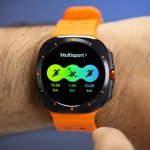The promising research in mice means University of Queensland (UQ) scientists are now ready to progress to human clinical trials of the new vaccine method that could revolutionise immunisation.If it works in humans, it means people would be able to vaccinate themselves by applying the patch instead of having to wait for an appointment with a doctor or pharmacist.To deliver the vaccine, a person would take the foil seal off the applicator, press the patch against their arm until it goes click, hold it against their arm for 10 seconds and vaccination is complete.The patch delivers the vaccine into the skin using 5000 microscopic projections that cause no pain.Because it does not require refrigeration like the Pfizer, Moderna, Novavax and AstraZeneca jabs, the patch would be a game changer in remote areas and low income countries.Tests have shown when dry-coated on a patch, the vaccine is stable for at least 30 days at 25 degrees Celsius and one week at 40 degrees.The vaccine patch was under development for use in influenza but researchers at the University of Queensland switched to studying its use against Covid-19 during the pandemic.The vaccine had to be trialled in mice before it could be tested in humans and the results of these trials have just been published in the medical journal Vaccine.UQ’s Dr Christopher McMillan said the vaccine patch appeared to counteract new variants more effectively than the current Covid-19 vaccine, delivered by injection.“We found that vaccination via a patch was approximately 11 times more effective at combating the Omicron variant when compared with the same vaccine administered via a needle.”The researchers are working with a Covid-19 vaccine called Hexapro but also tested delivering other types of vaccines including subunit vaccines, DNA vaccines, inactivated virus vaccines and conjugate vaccines via the patch.“So far, every vaccine type we have tested through the patch, including subunit, DNA, inactivated virus and conjugate produces superior immune responses compared to traditional needle vaccination methods,” Dr McMillan said.“The patch technology has the potential to offer a new – and more effective – weapon in our arsenal, at a time where new variants are mutating at a rapid rate.“The patches are not only more effective against emerging variants but are also far easier to administer than needle-based vaccines.”The research was conducted in partnership with Brisbane biotechnology company Vaxxas, which owns the patch and it used the Hexapro Covid-19 vaccine developed by a Texas company.Vaxxas CEO David Hoey said this is further evidence of the game-changing potential the technology platform could have in helping nations better respond to global health emergencies, like the current and future pandemics.“We are continuing to scale-up our manufacturing capabilities and accelerate product development in preparation for large-scale clinical trials,” he said.“This includes construction of our first manufacturing facility in Brisbane to support the transition to commercialising of our HD-MAP vaccine candidates, including a Hexapro Covid-19 patch.”
Powered by WPeMatico






